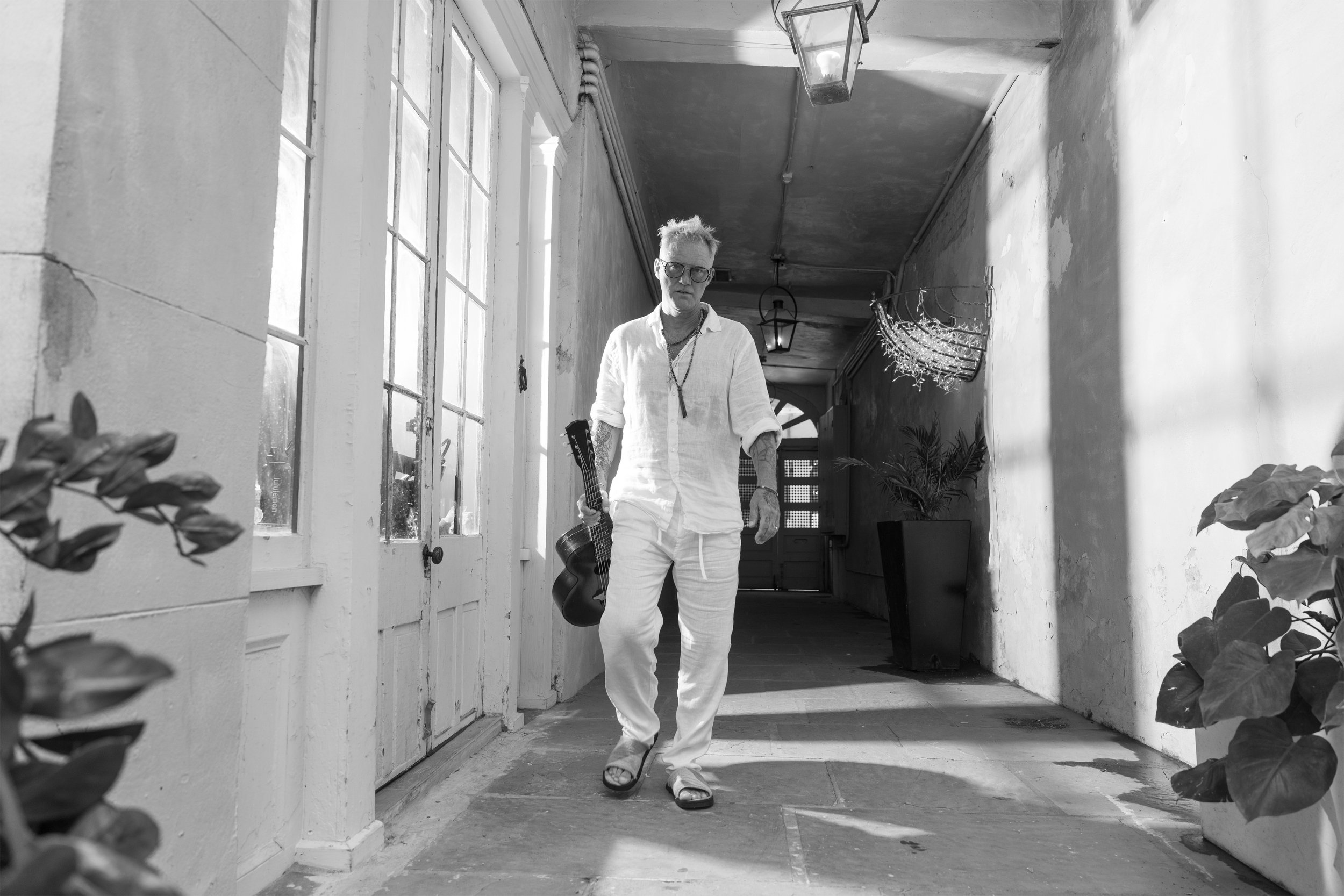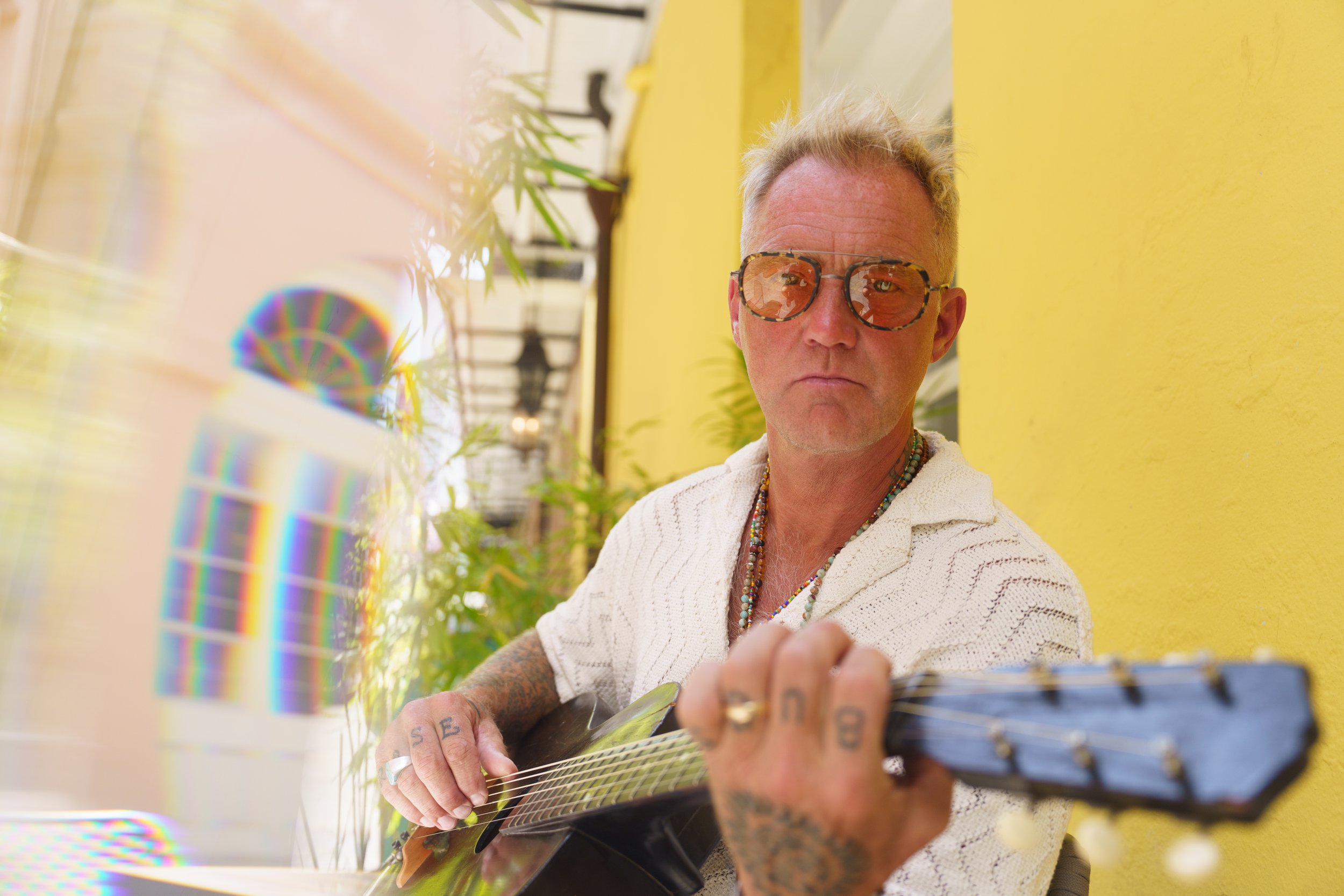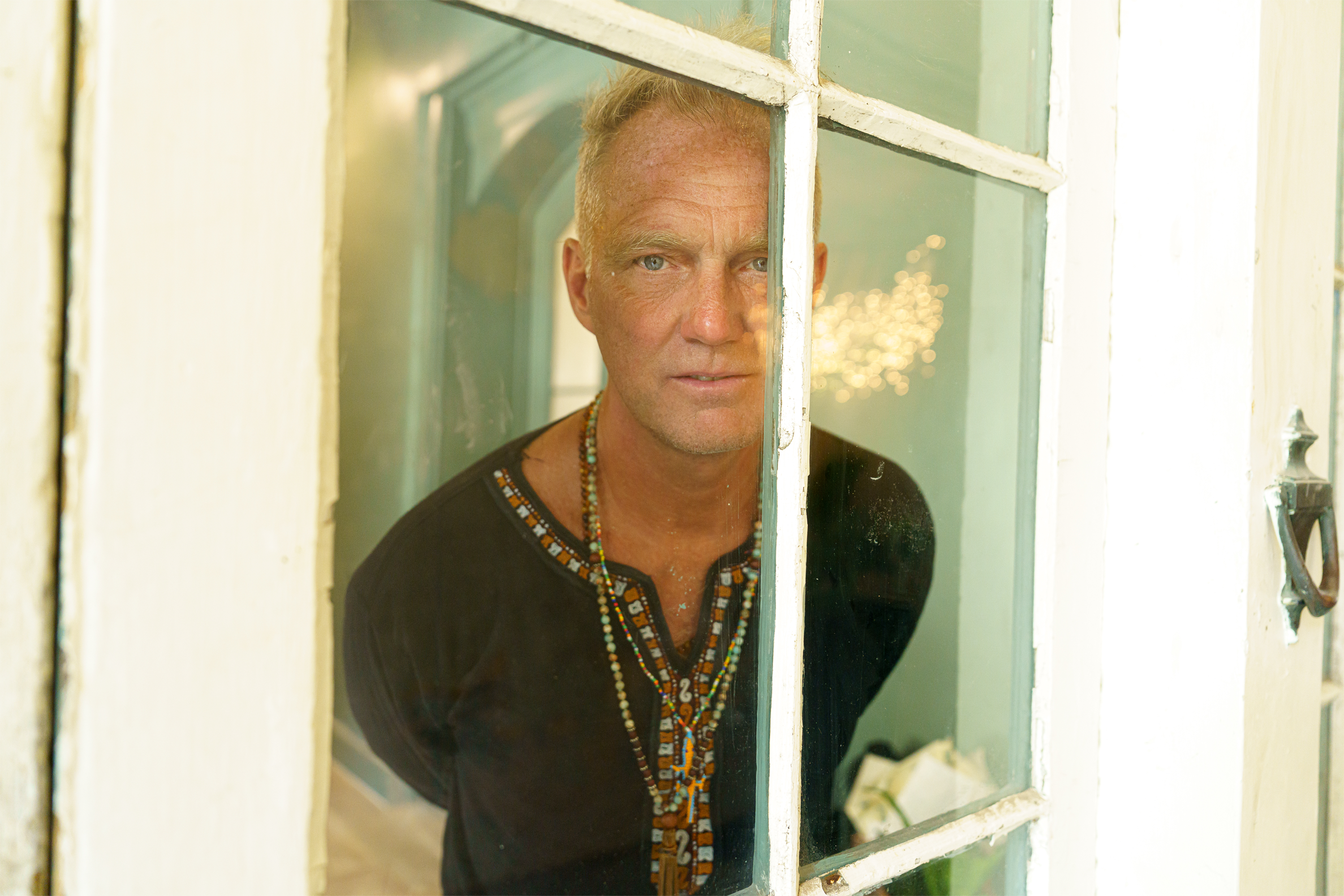Click Image to Download!
“Sometimes it feels like a curse, but it's more about my relationship with the Universe. Every time I’m just about to stop, I get that little sign or message that completely just expels the idea of quitting. There’s just no way. I keep getting reminded why I’m doing it.”
After an illustrious and far-reaching career that spans almost four decades, New Orleans-based Anders Osborne slowed down and took a step back to get his bearings and push forward. His latest record, Picasso’s Villa, which will be released in April of 2024 via 5th Ward/Missing Piece Records, is a reflection of the joy and excitement that was born out of that focused period of renewal.
“The biggest change in getting sober was the focus on meditation and prayer, just looking more inward. When I’m sleeping in 140 different beds a year, eating unhealthy foods, the meditation is what keeps me centered. If I’m en route somewhere, I’ll just put on a tape with a chant or a mantra—as opposed to being on social media. Holding myself in that sacred space for a while is what makes it possible for me to do all this.”
Through all of this focus on his health and recovery, Osborne began to rediscover his purpose, to feel the justification for the struggles, and to find healing. The songs that came to make up Picasso’s Villa started to surface through the freedom, playfulness, and fun of that process of rejuvenation.
“Sure, I had written some heavy stuff leading up to making this record, but the sessions themselves were just an explosive few weeks. I was in a really good head space starting it. Having Wendy Wagner and so many friends singing on the sessions, all the players, it was just sheer joy and so much fun.”
Picasso’s Villa was recorded in Anders’ hometown of New Orleans with an all-star cast of backing musicians, including Waddy Wachtel (Warren Zevon), Chad Cromwell (Neil Young, Joni Mitchell, Joe Walsh), and Bob Glaub (Bob Dylan, Jackson Browne). Sonically, the album captures a balance between the heavy, Crazy Horse-inspired rock present in Osborne’s raucous live shows, while simultaneously leaning into the more contemplative singer-songwriter roots that inspired his music from the very beginning.
“I especially hope it will reach an audience that never took the time to go deeper into the lyrics and craft behind what I do. The folks I worked with really helped me bring it all together. My process is so rough and free-form, but on this record we managed to capture all that dirt with the right amount of polish on it.”
Osborne’s history with his hometown of New Orleans, Louisiana is at the heart of Picasso’s Villa from front to back. On the opening track, “Dark Decatur Love”, Anders leans into his history there, reminiscing about the faces and places of his youth living and working in the lower French Quarter. The record’s closer, “Le Grand Zombie”, is a heartfelt tribute to the memory of Dr. John, the deeply influential New Orleans-based musician who was Osborne’s mentor, inspiration, and friend. After hearing the news of his passing, he was inspired to honor him, even using some of Dr. John’s own lyrics and weaving them through the song to honor and celebrate his legacy.
“When I was writing “Dark Decatur Love,” I was feeling very sentimental and missing my youth. It brought me back to a very romantic time. There were 5 or 6 years in the lower French Quarter where we had started our own little scene of artists, pool sharks, and dancers that all congregated together there. All we thought about every day was being ourselves—trying on different costumes to discover who we were, seeking for truth in the darkest places. Checkpoint Charlie’s and all those places on Decatur. They’re still who we are. It was a joyful exercise in reminiscing in a beautiful way.”
One of the album’s most uplifting tracks, reflective of the fresh energy Anders found through his mental and musical reset, is “Reckless Heart.” It’s a joyous anthem about his own self-acceptance, acknowledging that it’s okay to run into situations heart-first, and what a blessing it is to be exactly as we are.
“Bewildered,” the album’s most expansive song, is a veritable tour de force through four decades of civil unrest in America. From Cold War fears of the Eighties all the way through the current-day social struggles of minorities and oppressed communities, the song narrates how Anders has seen how “nothing changes, yet nothing stays the same.” We remain caught in a highly televised and politicized cycle of violence and confusion.
“Bewildered was more an exercise in historical observation. And for a song that came out so cold and factual, it was actually so engaging in a fun way to deep dive into the stories of the past that created instant cultural shifts—legislation making semi-automatic weapons available, the 24-hour news cycle, etc. I was trying to take a social stand while remaining somewhat neutral. All these basic human rights issues have been made into divisive political issues. But at the core of everything is the bewilderment of suffering and the basic human longing for bliss.”
Overall, Picasso’s Villa is the work of an artist who has fully returned to himself and said to hell with the rest. Even in the light of pain, struggle, and uncertainty, the album is more than anything a celebration of the chance we have to alchemize all that into something beautiful and move forward. It’s a reflection of the deep joy and peace that can be found in true friendship, family, self-reflection, and letting go of all the things that don’t matter.
“I know my place. When you spin all this into a self-gratifying thing, you’re screwed. Meditation reminds me of the cosmic unimportance of what I’m doing. In the scheme of this big society I’m in as a human creature, this is something I can do well. I believe it can be a gift, something I can share with the audience and serve them with. I can’t fight with what the universe asks me to do. So I’m just gonna stay in line.”
ABOUT ANDERS OSBORNE:
Between the potency of his richly detailed songwriting, his intensely emotional, soulful vocals, and his piercing, expert guitar work, Anders Osborne is a true musical treasure. Born in Uddevalla, Sweden, he began his artistic journey at a young age, inspired by a spectrum of luminaries such as Vivaldi, Chopin, Black Sabbath, Robert Johnson, Joni Mitchell, John Coltrane, Bob Dylan, and Bob Marley. At age 19, he visited New Orleans, fell in love with the rich culture of the city, and never left. Since his 1989 recording debut, he has released 16 full-length albums and steadily toured all over the world, either with his own band, as a solo artist, or as a guest with his countless musical admirers, including Toots and The Maytals, Dr. John, Derek Trucks, Warren Haynes, Keb’ Mo’, Bonnie Raitt, and The Grateful Dead’s Phil Lesh. The New York Times raved “Anders Osborne plays bluesy rock infused with second-line rhythms and the city’s wry survival instinct,” while Guitar Player called him “the poet laureate of Louisiana’s fertile roots music scene” and OffBeat named him the Crescent City’s Best Guitarist on three occasions and Best Songwriter twice. He has collaborated and co-written with artists such as Keb’ Mo’, Brad Paisley, Aaron Neville, Trombone Shorty, and Tim McGraw which scored him a #1 hit with the song “Watch The Wind Blow By.” His songs have appeared in multiple feature films and he can also be seen performing as himself in an episode of HBO’s New Orleans-based drama Treme. Osborne works closely with the “Send Me A Friend” foundation and through writing music for New Orleans Children’s Museum. He has additionally worked closely with Million Strong, Love Rocks NYC, Stand Together, Trombone Shorty Foundation, and Phoenix.









